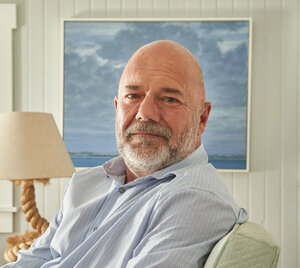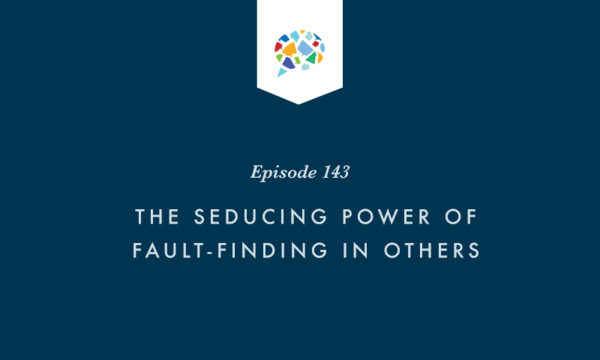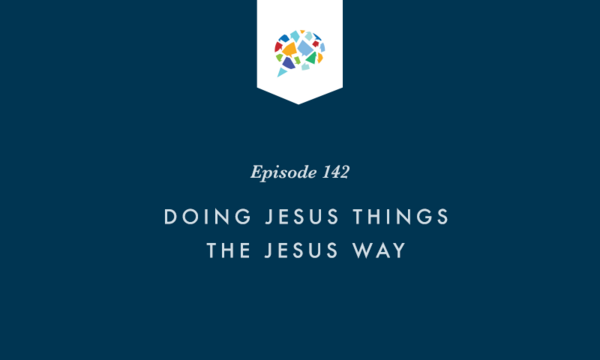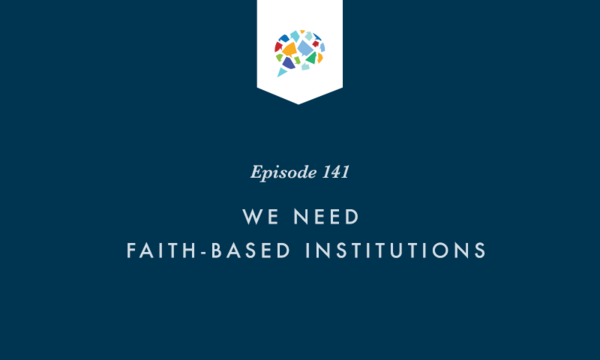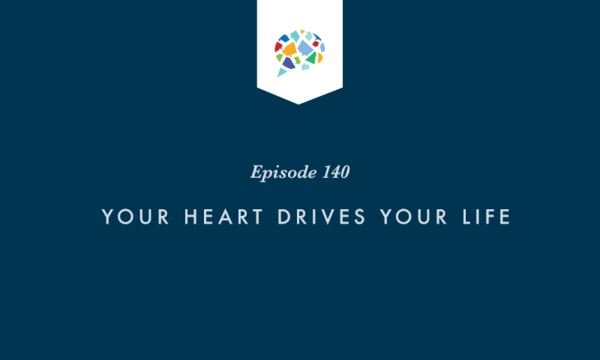
Civility is a requirement for a healthy republic. But we seem to be losing faith in civility, and people are confused on what civility involves and when to be civil. Andrew Sullivan joins the podcast to speak with Tim and Rick on a range of social issues that bear on civility. In this episode, they discuss the danger of labels and the importance of humanizing others before mining the secret of a health democracy. This is part 1 of a 2-part conversation with Andrew Sullivan on civility.
Transcript
Tim Muehlhoff: If you are unfamiliar with Andrew Sullivan, the New York Times boldly identifies him as one of the most influential journalists of the last three decades. His recently released collection, Out on a Limb: Selected Writing, 1989–2021, covers topics such as masculinity, how subcultures are formed, the complexity of racism, political divides, the nature of sex, the power of stereotypes, and most importantly for us, civility as a requirement for a healthy republic. With such a resume, you can imagine our one-hour sit down with Sullivan could go in many directions and our conversation did. As a result, we thought it'd be wise to break up the conversation and provide many introductions to diverse topics. We first introduce Andrew Sullivan, and then sit back and we enjoy the ride. Ready to jump in?
Welcome to the Winsome Conviction Podcast, my name is Tim Muehlhoff, I'm a Professor of Communication, here at Biola University in La Mirada, California. And also, the co-director of the Winsome Conviction Project with my good friend and colleague, Rick Langer.
Rick Langer: And I'm also, as Tim mentioned, a professor at the Biola University, the Director of the Office of Faith and Learning and we work together doing the Winsome Conviction Podcast. One of our special treats in doing that, is talking to some absolutely wonderful guests. And today we have with us Andrew Sullivan, who's one of the most provocative social and political commentators of our day. He's been the former editor of the New Republic, founding editor of the Daily Dish, has been a regular writer for the New York Times Magazine, The Atlantic, Time, Newsweek, New York Magazine, Sunday Times, Weekly Dish. I'm not sure what all else, but he's written a lot. I have read a lot of your stuff-
Andrew Sullivan: Mmm-hmm.
Rick Langer: For the last 30 years, or so. It's been an absolute delight and so, it's a privilege to be able to meet you.
Andrew Sullivan: Well, thank you.
Rick Langer: In today's argument culture, we're quick to label people. We put them into prefigured categories. And Sullivan, I think, wisely wants to push against our propensity to label people in a search that most of the people we'll meet, are actually completely uncategorizable.
Let me just ask you a question at the outset. We live in a culture that is full of labels and so, we all quickly label people, we identify them, we plop them in a box. So, when I come to talk about Andrew Sullivan, you seem to be a bit of a category buster. You're a conservative, Catholic journalist, who served as a columnist for the New York Magazine. You've written a book called, Virtually Normal, advocating for gay marriage. But, you've also written a book called, The Conservative Soul. You're gay, but you've expressed doubts about the transgender movement, particularly youth gender transitions, as well as doubts about anti-racist, like Ibram X. Kendi, critical race theory, wokeness. So, it's probably fair to say, you don't exactly fit conveniently into most of our major categories these days. So, tell us just a little bit about, what makes you tick? Who you are? How you came to the views that you have?
Andrew Sullivan: I hate the idea that humans are being herded like sheep, into little paddocks.
Rick Langer: Mm, mmm-hmm.
Andrew Sullivan: Where, you are now a wokey, you are now a social conservative, or you are now an evangelical, or you are a lefty, liberal, or whatever. These things are complicated. There are people who have very left wing politics, have very conservative, cultural habits themselves. There are people on the opposite side.
Rick Langer: Mmm-hmm.
Andrew Sullivan: Most of the really interesting people in history, I think, are completely uncategorizable.
Tim Muehlhoff: Yeah.
Rick Langer: Mm.
Andrew Sullivan: And have been many things at different times. And we're also dynamic beings. So, we live through a continuum, so that we will change as humans and we will be affected by different environments and we'll be affected by things that happen to us. So, at any moment, we're also going to be in flocks ourselves. We develop, we grow, I hope we grow. And so, I think the goal, is to get past those things and to look at people as an individual.
Tim Muehlhoff: I teach communication classes, as part of what I do at Biola University and I love that. I love being curious about a person's past. The Harvard Negotiation Project says, "One of the biggest mistakes we make, is we trade conclusions with each other, but we never share how we arrived at the conclusion." So, I love the fact that what you're saying is, this is a winding road. And for me, not just to be so eager to put a label on you, but more to get the backstory, I think is a good word in today's society, where we're just desperate to put people in categories.
Andrew Sullivan: Yes. And we are desperate to put them more so, in hierarchies, so that the people above this level can be bashed, people below this level can't be bashed. But, in fact, let's talk about someone super privileged.
Tim Muehlhoff: Mm.
Andrew Sullivan: We don't know that person's life. I don't know whether they grew up in a horrible home, lonely, wealthy people... Kids of wealthy people can be bloody miserable.
Tim Muehlhoff: Mmm-hmm.
Andrew Sullivan: And I don't know what issues they've dealt with. Maybe, they have addiction questions. Maybe, they are very insecure about... I mean, all sorts of things. That, they look powerful and strong on the surface, does not mean that they are. I learned this the hard way, when I went to college. College, I went to Oxford on a scholarship and I was very much not the classic, Oxford, Boris Johnson picture. Although, I knew him and we were there together, actually.
Tim Muehlhoff: Ah.
Rick Langer: Oh, really?
Andrew Sullivan: Because, he went to eat and all these people went from these very... And I was the first one in my family to go to college, at all.
Tim Muehlhoff: Mm.
Andrew Sullivan: And so, I had a bit of a chip on my shoulder. And I once made a disparaging remark about one of these toffs, in one of these snooty, champagne-drinking, rich, upper-class, rah-rah boys that we all thought were pathetic and stupid and-
Tim Muehlhoff: Mm.
Andrew Sullivan: A friend of mine, the person I was saying this with, said, "I went there too, you know?"
Rick Langer: Yeah.
Tim Muehlhoff: Mm.
Andrew Sullivan: You don't know-
Tim Muehlhoff: Mm.
Andrew Sullivan: Who these people really are. And they can be terribly vulnerable too. And I think, the point is to see past those things. I mean, that's the point of not being prejudiced, right? That's what it really means. Not being bigoted, means not ascribing to someone, something that is superficially true about them, but doesn't capture them at all as a human being.
Tim Muehlhoff: Yeah.
Andrew Sullivan: Normally, in a way to dismiss them, or to categorize them in a way that you don't have to think about them anymore.
Tim Muehlhoff: Mmm-hmm.
Andrew Sullivan: And that's what we're asked. I think, we can go through a life like that. And partly, it's human nature to generalize, because you learn through life, that's what evolution did. If we didn't learn to generalize, we would all be dead by now. That's what we had to do as tribal, hunter-gatherers, we had to discriminate between friend and foe and all the rest of it. We had to make these simple assumptions. But, now we have to move a little bit past that.
Tim Muehlhoff: Even with all of our faults and struggles, Sullivan thinks of America as an experiment that has never been attempted before in human history. A country filled with different ethnicities and races, different languages, and a variety of religious and political beliefs. Yet, despite all these differences and possible tensions, America is a treasure that we need to protect. But, how? In the next segment, Sullivan shares the secret to a healthy democracy, insights we need to embrace and practice, in our current divided country.
Thinking of a 60-minutes interview you do with Scott Pelley, November 12th, 2021. And you said, "There were two keys to democracy, debate and compromise."
Andrew Sullivan: Hmm.
Tim Muehlhoff: And boy, we just don't hear that enough. I almost wanted to add a third, based on what you just said, compassion. But, you said this, you said, "The American constitution was set up for people who can reason and argue and aren't afraid of it, and then reach compromises. The whole thing is designed that way. And if you're in a tribe and all that matters is the victory of your tribe, then you can't make it work." Can you elaborate on a little bit of what you might mean by tribalism? And then, the need for compromise? And the need for good debate?
Andrew Sullivan: I think, you begin a democratic society by accepting there are people in society with whom you are going to profoundly disagree. Because, it's a free society. And so, people are going to have different views, they're always going to have different ways of life. And the job of us in a society, in a free society, is to live and let live with other people, right? So, find a way to live with people. And that will inevitably mean compromises of your interests, of their interests. And it will also, to some extent, maybe tread on ground that's emotional, that's difficult.
Tim Muehlhoff: Mm.
Andrew Sullivan: We are asked, as democratic citizens, to overcome our emotion, or at least to get through it and to talk reasonably with one another. And then, to come to compromises that don't really satisfy anyone completely-
Tim Muehlhoff: Yeah.
Andrew Sullivan: But, are enough to get us to keep going.
Tim Muehlhoff: Mm.
Andrew Sullivan: The alternative, is to end a free society altogether and to coerce everybody, that can't be done. Right now, we're in a position where the two sides, and they've become, two sides have become emotionally, psychologically separate. They're not talking to each other at all.
Tim Muehlhoff: Mm.
Andrew Sullivan: They are virtue signaling to themselves, how great a tribalist they are, how big a social justice warrior this person is, or how big a Trump supporter this person is. But, that's not getting us anywhere.
Tim Muehlhoff: Mm.
Andrew Sullivan: And so, what you see is a Congress that becomes completely dysfunctional, because actually, it can barely pass a budget, because they hate each other so much.
Tim Muehlhoff: Yeah.
Andrew Sullivan: And you've got to come to the point where you love your country more than you hate the other side.
Tim Muehlhoff: Oh, my goodness. Can you say that again, Andrew?
Andrew Sullivan: Well, I think, you've got to come to the point, where you love your country more than you hate the other side.
Tim Muehlhoff: Mm.
Andrew Sullivan: And I fear that we have slipped past that.
Tim Muehlhoff: Yeah.
Andrew Sullivan: And I'm an immigrant here, right? So, I've watched this. And I feel sometimes, that I have to tell Americans, "Do you understand what a amazing place you have here?"
Tim Muehlhoff: Mm.
Andrew Sullivan: "What this extraordinary system has achieved?" Yes, it's got flaws. Of course, it's got flaws. Yes, some of those go deep into our past, we must confront them. But, get some perspective guys. Would you rather live in China? Would you rather live in Russia?
There are still vibrancy here-
Tim Muehlhoff: Mm.
Andrew Sullivan: And diversity, more than anywhere else. And it's an experiment that has never been attempted before in human history. Which is to say, not a city, but an entire country that contains dozens of profoundly different ethnicities and races-
Tim Muehlhoff: Mm.
Andrew Sullivan: Even some different languages. Plenty to begin with, of immigrants. Black, white, brown, everything in between. Complete variety of religious views and political views. And somehow, it's hung together. Not only is it hung together, it's turned out to be the most prosperous and free country-
Tim Muehlhoff: Mmm-hmm.
Andrew Sullivan: In the history of the world. So, can you please calm down a minute before just tearing this whole place down as a function of white supremacy, or regarding it as being taken over by a bunch of communists lefties, who we are going to destroy your way of life. And calm down, realize that neither those things are really true. At least-
Tim Muehlhoff: Mm.
Andrew Sullivan: They may have parts of truth to them, but that it's much better for us to get along.
I look at China, you look at how it's responded to Covid, you look at what's happened to Russia. And those are two great powers, two rivals of our powers and their systems are failing.
Tim Muehlhoff: Mm.
Andrew Sullivan: People talk about China as this great rise, it is nowhere near. It's political system is incredibly vulnerable. Look at what is going through now, this insane zero-Covid policy, which is a fixation of a dictator for life, that is killing their economy. Or, look at the absurdity of Putin's Russia, where they're creating this total Potemkin war on their screens, while they're barely able to occupy Ukraine. We have lots of problems, but a large number of our problems, we are making ourselves.
Tim Muehlhoff: Mm.
Rick Langer: It seems like it has become a virtue to point out America's vices. In other words, this has become a cottage industry, or perhaps even more than that.
Tim Muehlhoff: Mm.
Rick Langer: It seems particularly robust in academia, but obviously it spreads to the rest of the world. I feel like, part of what's happened with that, is that if we want to bring up some of the positives as you have just done, it is almost like we have polarized, or disclosed to the point where that means you're denying every negative.
Tim Muehlhoff: Mm.
Rick Langer: And it's like you've ended up creating a bank account from which you can only make a withdrawal, but you can't make a deposit. So, I feel hopeless sometimes, in that regard. Do you have any thoughts about that? How do we make deposits in the American account, so to speak?
Andrew Sullivan: Well, let's take the 1619 Project, which was a New York Times [inaudible 00:14:06] Magazine, grand production, designed for high schools. They did a big song and dance about it. And it essentially, re-described the founding of the United States, as the arrival of first slaves. Re-described the United States as a slavocracy at its core, described capitalism as a Millian extension of the realm of slavery. Argued that the United States only sought independence from Britain, because it wanted slavery, not freedom. Argued that no white people contributed to the benefit of African Americans in 400 years. And when you said, "Come on, this is extraordinarily distorted." They say, "Well, you're a racist. You don't care about the fact that there were these horrifying facts about American history. That there was horrifying levels of physical insecurity of African Americans." I mean, for so many years... I mean that, even when they're not slaves, there is a level of physical insecurity, the lynching and murder, that took place and violence in places like Tulsa, as recently as 1920.
I think, what you have to say is this, "This country has an unbelievably difficult and dark past, in some respects. It does. It is our duty actually, to remind ourselves of that and to do good scholarship, that helps bring it to light and it helps, like new scholarship about the Tulsa massacre. New scholarship that helps us understand exactly how slaves were treated in various parts of the South." All of this is to be welcomed, but to define the entire country by that, is a distortion. It's true of America, that this is part of its original sin. It is also true that America was the first country to really throw that system off-
Rick Langer: Mm.
Andrew Sullivan: That pioneered the ideas that defeated it. And it is an America in which hundreds of thousands of people died, sacrificed their lives, to get rid of that institution. Overwhelmingly, white Americans who faced death and lost their lives to protect the rights of black Americans. Can we just remember that for a minute? That is something-
Rick Langer: Yeah.
Andrew Sullivan: Remarkable to be aware of. And again, it's not... Or, I look at my own situation, I'm a homosexual, right?
And the United States treated homosexual pretty horribly, for a very long time. There's a new book just coming out called Secret City, which details the 1950s in Washington, in which there was a systematic purge of every person deemed to be, thought to be, or associated with homosexuals, under Eisenhower and under Truman. That was a purge of tens of thousands of people serving their country.
Rick Langer: Hmm.
Andrew Sullivan: Not just purged, but ruined, humiliated. The suicides, the death of gay men in Washington, D.C. The suicide rate in that city went up, in that period when they were persecuting people. Now, I've lived through a lifetime where I've also seen this country deal with the crisis of Aids, but I've also seen this extraordinary attempt by some of us and by other people to have a constructive debate. But, how do we fit in here? What's the real solution? How do we integrate gay people? Include them into our families and our society more effectively? In a way that is a compromise and doesn't affect your rights, will not hurt you in any way. And we achieved it, remarkably quickly.
Rick Langer: Hmm. Well, thanks a ton for joining us, Andrew. We are grateful for you tuning in on the Winsome Conviction Podcast. We'd love to have you subscribe at Apple Podcasts, or Spotify, or wherever it is that you get your podcasts. And also, check us out at thewinsomeconviction.com, to see some of the resources we make available to you, for help. Making our discourse as a nation, as a church, more civil, more loving, and more productive. So, thank you for joining us today.
 Biola University
Biola University

